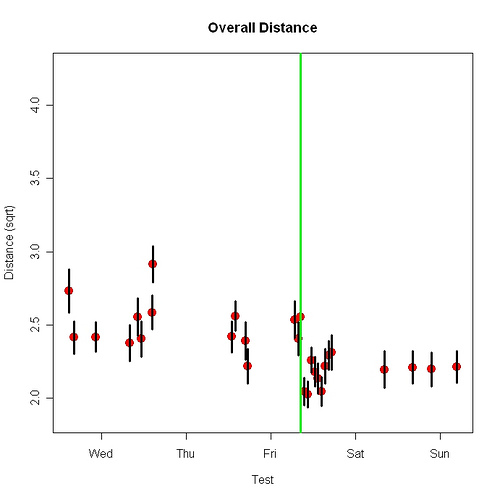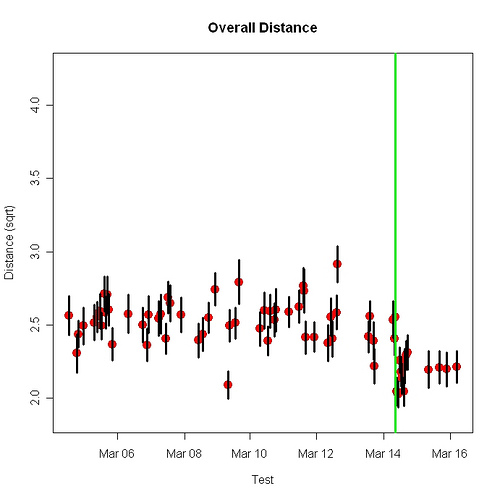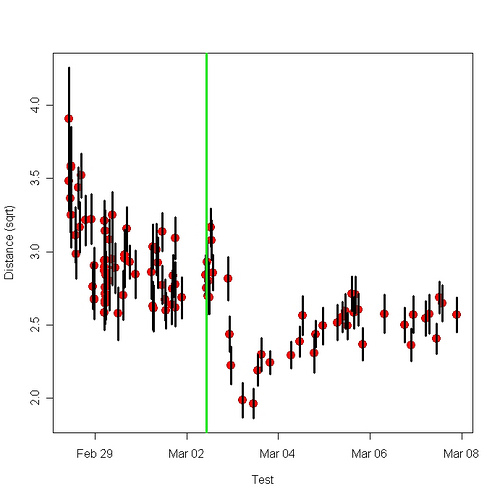Background. I took 4 T of flaxseed oil during the day (instead of just before bedtime) and measured its effect with a cursor test. The test was how accurately I move the cursor from one point to another with a single movement. The result was a sharp improvement — some of which lasted, some of which didn’t. (Just to be perfectly clear: what’s varied is not my daily amount of flaxseed oil. It’s the time of day I take it. I’m varying the time between a short-lived peak in omega-3 concentration, which happens shortly after ingestion, and doing the cursor test. Usually they are far apart. The interesting data are what happens when I move them close together.)
New data. I tried the same thing again. Here are the results.
The green line shows when I took 4 tablespoons of flaxseed oil. I took the oil at 8:30 am. The first test after that, at 9:30 am, showed the improvement. (In previous measurements of the short-term effects, it has taken closer to 2 hours to see the maximum effect.)
Here is a longer view, which emphasizes the constancy of the pre-test baseline.

For comparison, here are the earlier results.

Conclusions. When I take 4 T of flaxseed oil, it creates for a few hours a higher-than-usual concentration of flaxseed oil in my blood. I’m pretty sure the active ingredient is omega-3. This has two effects:
I’m curious how your general consumption of flax influences these results — I was under the impression you took flax more regularly. I’m also wondering whether the persistence of a good-performance effect reflects learning as opposed to enhanced cognitive functions that are directly related to some more persistent aspect of the flax. Perhaps it is less a learning effect and more an efficient neurological function effect. A graph that showed longer timelines and multiple dosages would be illustrative.
Interesting though — thanks.
I take 4 T flax daily. Usually late in the evening — 11 pm, for example. (This is not shown on the graphs.) These graphs show what happens when I take it earlier.
This is why the persisting effect reflects learning — aftereffects of the combination of Event A (very high flaxseed blood level) and Event B (doing the cursor test) at the same time. Usually the very high flaxseed level happens while I am asleep. In other words, usually Events A and B happen far apart. The treatment is to bring them close together just once. A reasonably high level of omega-3 is nothing new because I take flaxseed oil every evening.
Gotcha. It would be interesting to see that tested with a more common athletic skill, such as free throws — you any good at basketball?? Maybe it could help my squash game too. If you want to test other cognitive functions the Nintendo “How Old Is Your Brain” game might be interesting — it tests math and other skills and you might be able to see a performance effect there, though it isn’t as quick as your current test. Another simple one (though missing your game criteria of being fun, depending on your idea of fun) might just be speed and accuracy in solving a few tough randomly generated math questions in your head. A performance effect there would be very interesting as well.